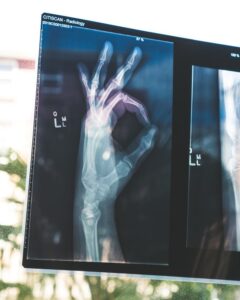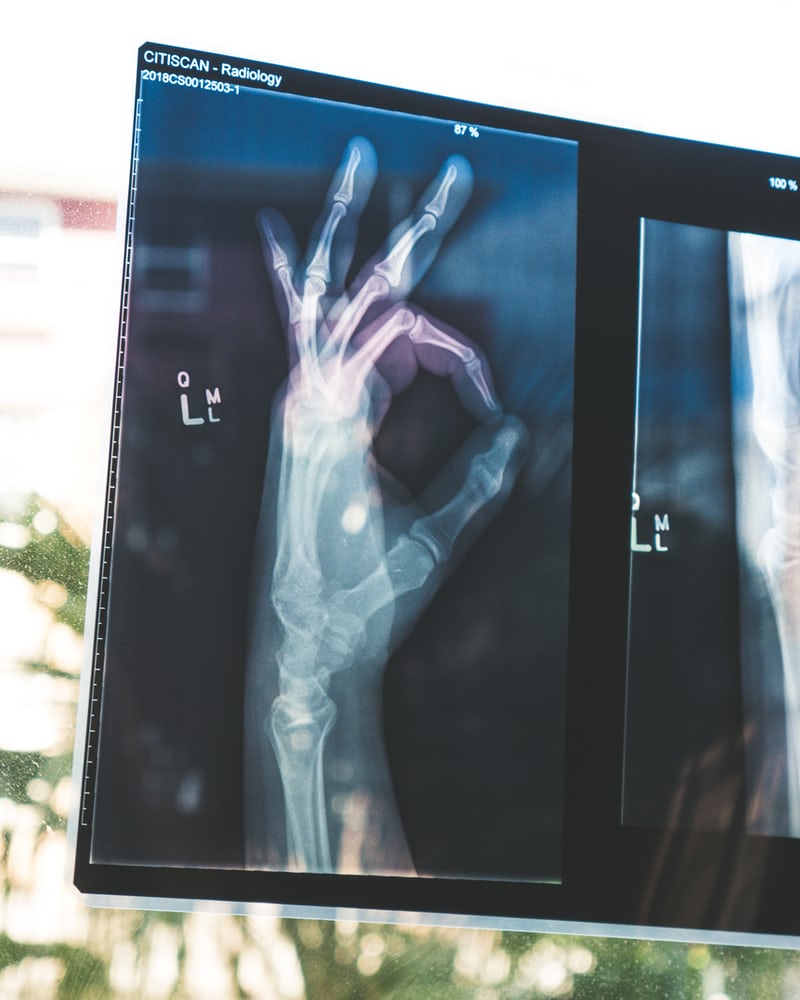When you are not okay: the danger of not getting treatment after a motor vehicle accident
 Motor vehicle accidents (“MVAs”) are extremely dangerous. An average mid-sized sedan weighs about one-and-a-half tons. Even when moving at relatively low rate of speed, the force of a one-ton collision is enormous. A head on collision is far worse. If a vehicle going 47 mph strikes another vehicle traveling 64 mph, the collision is of a similar magnitude to a vehicle traveling at 111 mph ramming into a concrete barrier. Modern safety features have dramatically reduced the risk of injury in a MVA, but there is little technological innovation can do to offset the impact of a high-speed head-on collision.
Motor vehicle accidents (“MVAs”) are extremely dangerous. An average mid-sized sedan weighs about one-and-a-half tons. Even when moving at relatively low rate of speed, the force of a one-ton collision is enormous. A head on collision is far worse. If a vehicle going 47 mph strikes another vehicle traveling 64 mph, the collision is of a similar magnitude to a vehicle traveling at 111 mph ramming into a concrete barrier. Modern safety features have dramatically reduced the risk of injury in a MVA, but there is little technological innovation can do to offset the impact of a high-speed head-on collision.
Some MVAs cause immediately life-threatening injuries. First responders take the injured directly to a hospital for critical care. However, other incidents may not cause injuries that require the same type of immediate life-saving intervention. The injured party will be offered the option to travel to a hospital in an ambulance, but instead of accepting emergency transport, the individual injured will decline for a number of reasons. He or she might feel embarrassed or ashamed of being in an accident; the cost of the ambulance service will cause financial hardship; the idea of taking an ambulance when not in a life-threatening situation may feel selfish; pride may play into the decision-making process; or the injured person may just not feel like they’ve suffered a severe enough injury to justify that level of attention.
While some of those who decline emergency transport may go directly to the emergency room by other means, many decide to wait and see their primary care physician. Others will not seek medical attention at all, or simply decide that the injury is not severe enough for pay for the office visit, waiting to see if the injury heals on its own. While financial concerns are valid—our system’s fundamental flaw is that seeking medical treatment can end in bankruptcy—it is always wise to see a doctor after an MVA.
First, your wellbeing may be at stake. It may feel as though your injury is minor. This can cause a false sense of security. Certain injuries do not cause immediate symptoms. Whiplash, an injury of the soft tissue in the back, neck, abdomen, shoulders, or chest, may not hurt for hours, or even days, after the injury. However, going forth with your ordinary daily activities may aggravate the injury. In fact, you may even feel perfectly fine at first but eventually find you are unable to perform common everyday tasks.
 Traumatic brain injuries (“TBIs”) are another type of injury often not immediately apparent. Minor TBIs are commonly called concussions. You may be symptom free, or the TBI may cause disorientation that affects your ability to self-diagnose. TBIs can cause serious and life-threatening complications. Fortunately, TBIs can typically be diagnosed by a medical professional. If you’ve hit your head in an accident, it is imperative to seek treatment. However, TBIs do not always involve an impact to the head. The brain rests in fluid within the skull. A brain abruptly stopping or being bounced in the skull during a collision can cause impacts of significant force, causing it to swell. The swelling brain is restricted by the skull, causing damage as it pushes outward without room to expand, an immediately life-threatening situation.
Traumatic brain injuries (“TBIs”) are another type of injury often not immediately apparent. Minor TBIs are commonly called concussions. You may be symptom free, or the TBI may cause disorientation that affects your ability to self-diagnose. TBIs can cause serious and life-threatening complications. Fortunately, TBIs can typically be diagnosed by a medical professional. If you’ve hit your head in an accident, it is imperative to seek treatment. However, TBIs do not always involve an impact to the head. The brain rests in fluid within the skull. A brain abruptly stopping or being bounced in the skull during a collision can cause impacts of significant force, causing it to swell. The swelling brain is restricted by the skull, causing damage as it pushes outward without room to expand, an immediately life-threatening situation.
Another reason to seek immediate treatment is less apparent. Michigan No-Fault Auto Insurance provides an injured party compensation for medical bills, lost wages, personal care, and medical transport. This is paid by your own insurance company. Under Michigan Law you can also recover damages for pain and suffering from the at-fault driver’s insurance company if you a seriously injured. Both types of recovery require the approval of the insurance company or barring that, a court order secured through a lawsuit. In either event, you will need to prove your injuries are real and were caused by the MVA, not some other trauma.
Insurance companies will look at your medical treatment following the accident to determine whether your injury was caused by the accident or some other cause. In some cases, the insurance company will try its best to avoid paying a claim. Insurance companies will try to exploit a gap in time between the accident and the subsequent medical treatment, arguing that if the injury were serious, it would have been immediately treated. Personal injury lawyers are skilled in proving this argument false, but in the event you are involved in a law suit, it is best to not have to respond to questions about the timing of treatment.
In sum, you should seek medical treatment following a MVA if it is at all practical in your individual circumstances. Even if you feel fine, a medical examination can help reveal injuries that are not apparent immediately—or at all apparent—to the injured person. If you were involved in an MVA and did not seek immediate medical treatment, insurance companies may try and deny your claims. If this is the case, you should seek legal counsel to evaluate your situation.
The attorneys at Neumann Law Group are experienced MVA attorneys. We represent injured parties against their own insurance companies for medical bills and lost wages, and we represent individuals when suing the at-fault driver’s insurance company. Regardless of whether you sought immediate treatment, or if you waited until your injuries developed at a later time, we can evaluate your situation. Our consultations are completely free, and if you hire us, you will not pay any attorney fees unless we win. Call us for your free case evaluation at 1 (800) 525-NEUMANN. That is (800-525-6386).



